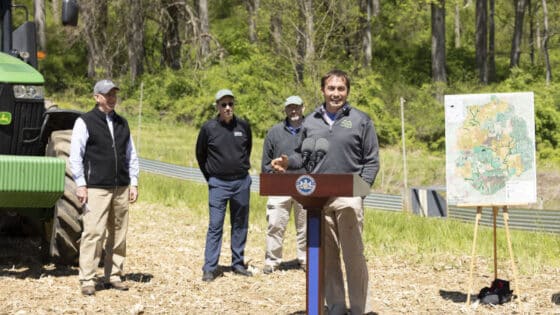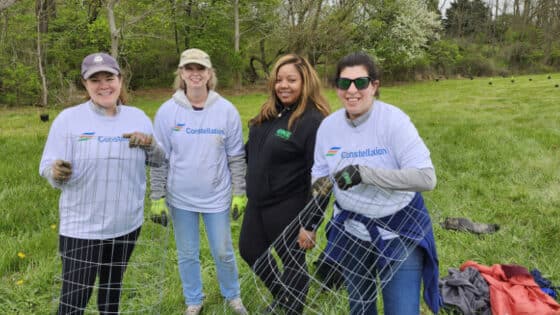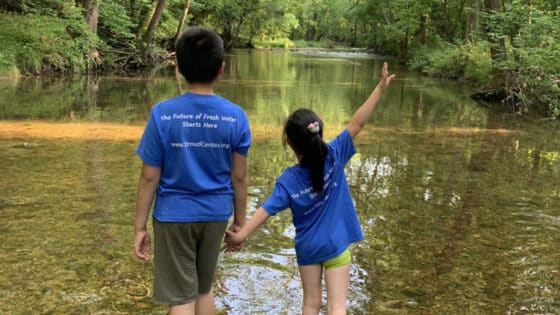
Watershed Restoration Coordinator
Watershed Restoration Group
Contact
Email
tel. 610-268-2153, ext. 1310
mobile 717-576-3287
970 Spencer Road, Avondale, PA 19311
Interests and Expertise
Lamonte Garber is an experienced conservation professional with decades of achievement in agricultural water quality protection and natural habitat restoration. He coordinates projects which strengthen the environmental performance and economic sustainability of agricultural producers and rural landowners in Pennsylvania. Garber uses a broad suite of tools in his work, including outreach, fundraising, media, project coordination, and on-farm assistance.
Education
- B.S., agricultural economics and rural sociology. The Pennsylvania State University, University Park, Pennsylvania.
- Goshen College, Goshen, Indiana.
Professional Experience
- Watershed restoration coordinator, Stroud Water Research Center, 2014–present.
- Pennsylvania agriculture program manager, Chesapeake Bay Foundation, Harrisburg, Pennsylvania, 2008–2014.
- Private consultant, Lancaster, Pennsylvania. Worked with Chesapeake Bay Foundation, Pennsylvania Association for Sustainable Agriculture, Buy Fresh Buy Local, and Blue Ribbon Commission on Lancaster County Agriculture, 2003–2007.
- Interim executive director and director of Southeast Pennsylvania Association for Sustainable Agriculture, Millheim, Pennsylvania 2000–2002.
- Project associate, Environmental Quality Initiatives, Inc., University Park, Pennsylvania, 1999–2000.
- Pennsylvania agricultural specialist, Chesapeake Bay Foundation, Harrisburg, Pennsylvania, 1988–1998.
Related News
Connecting Land and Water Solutions: Lamonte Garber Joins Watershed Restoration Group
Garber will serve as the watershed restoration coordinator, working with landowners and partnering agencies on restoration and conservation projects throughout Pennsylvania and beyond.
UpStream Newsletter, December 2013
Low Levels of Fracking Wastewater Highly Toxic to Mayflies: Stroud Center scientists find mayflies, whose presence indicates good water quality, are significantly affected by low levels of produced water.
UpStream Newsletter, July 2013
Where the Wells Run Dry: To predict the potential impact of climate variability, climate change, land use, and human activity on water resources in the Central Great Plains, Melinda Daniels, Ph.D., is leading a three-year research project recently funded by the National Science Foundation.



